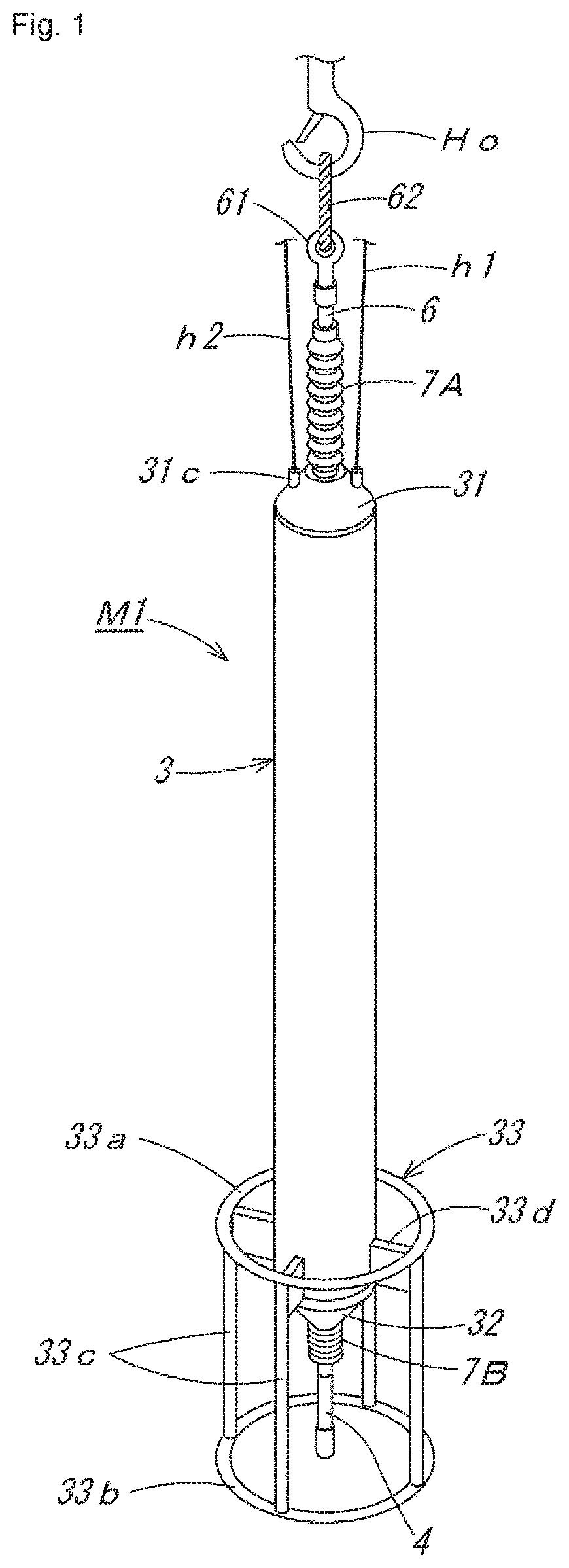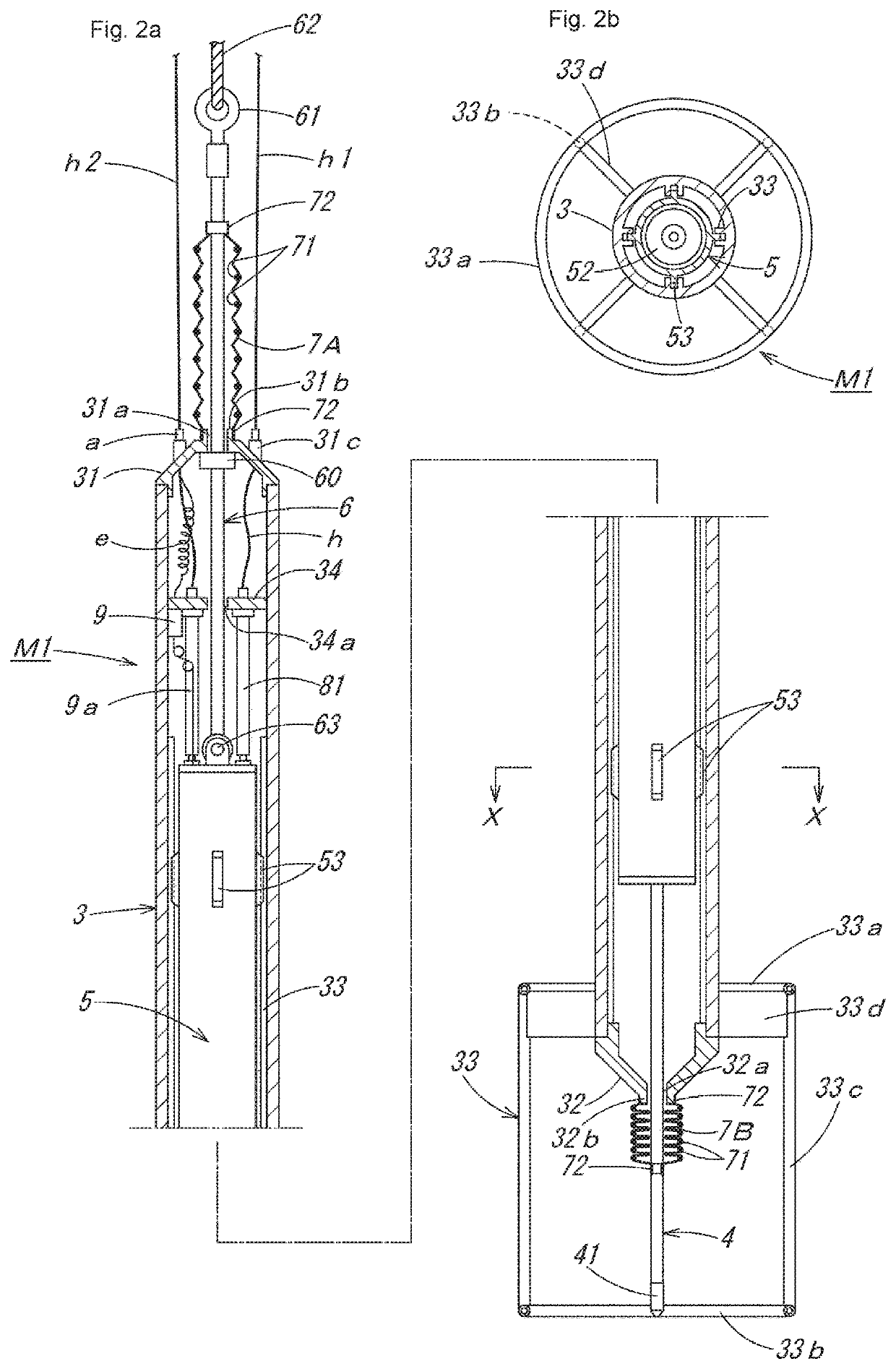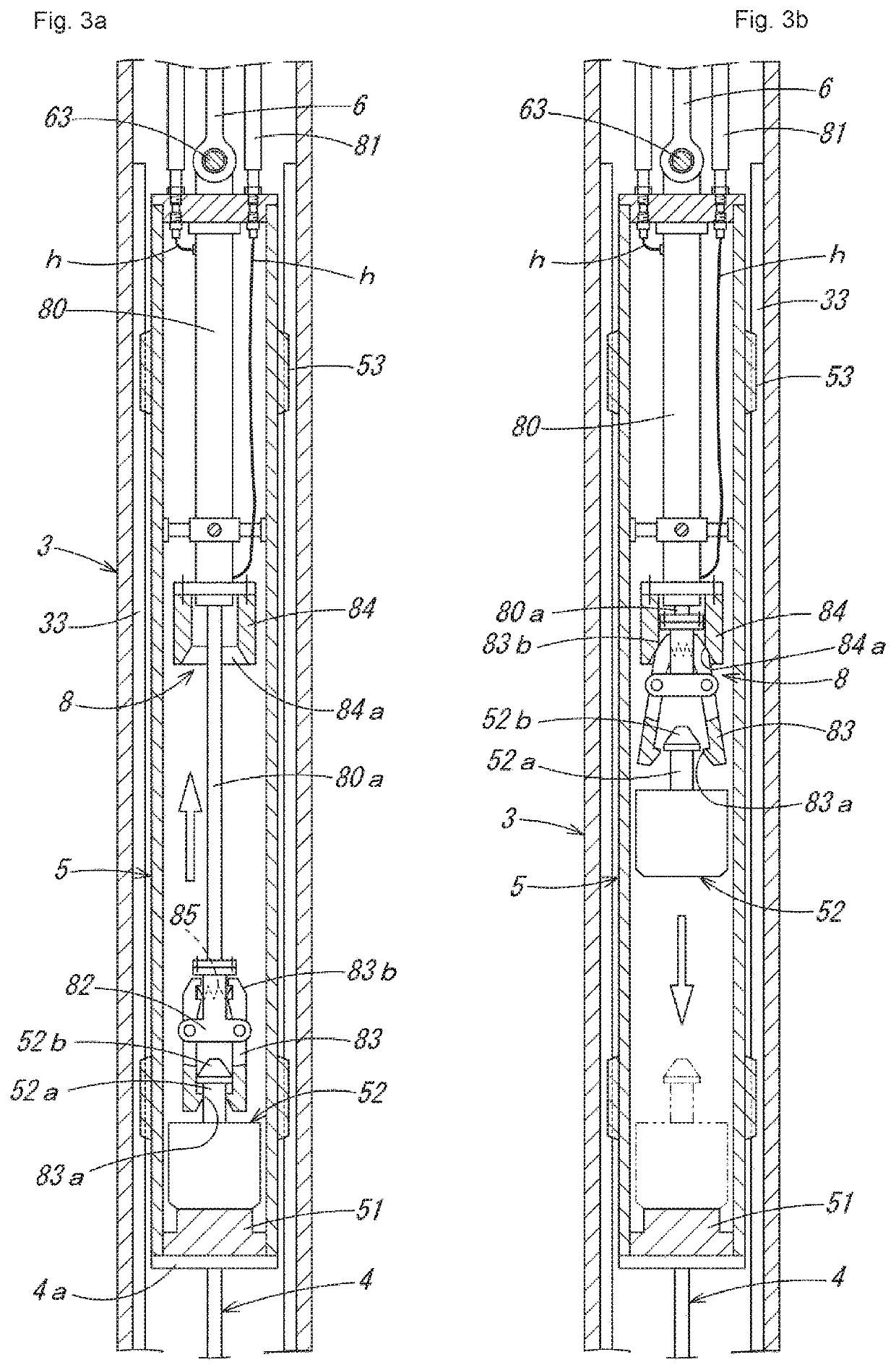Piling construction management method
a construction management and construction technology, applied in the direction of construction, force/torque/work measurement apparatus, instruments, etc., can solve the problems of large amount of labor, time and cost, large amount of digging load, and significant increase of digging load, so as to achieve easy and swift connection and easy response
- Summary
- Abstract
- Description
- Claims
- Application Information
AI Technical Summary
Benefits of technology
Problems solved by technology
Method used
Image
Examples
first embodiment
[0057]As a piling construction management method using the penetration testing device M1 of the suspended type described above, first, piling construction of a first embodiment by a preboring method is described in order of steps shown in FIG. 5 and FIG. 6. In this piling construction, FIG. 5(a): a screw rod Rs is attached to an auger machine A that moves up and down along a leader (not shown in the drawing) of a three-point pile driver, etc., and the screw rod Rs is lowered while being driven to rotate to dig the ground G, and FIG. 5(b): after a piling hole H1 with a depth reaching an estimated bearing stratum Gh of deep underground is formed, FIG. 5(c): while the screw rod Rs is pulled up, a foot protection liquid Ls such as soil cement is injected, and FIG. 5(d): subsequently, a hole circumference fixative solution Lf is injected up to an upper portion of the piling hole H, the screw rod Rs is pulled out, and then FIG. 5(e): the penetration testing device M1 suspended by a wire W...
second embodiment
[0063]Next, as a piling construction management method using the penetration testing device M1 of the suspended type described above, piling construction of a second embodiment by a kelly bar type earth drilling method is described in order of steps shown in FIG. 8 and FIG. 9. In this piling construction, FIG. 8(a): a weak stratum Gs at an upper level of the ground is dug and soil is removed by a shaft digging bucket B1 connected to a kelly bar K of an earth drill machine, FIG. 8(b): a standpipe Ps is press-fitted into the dug hole, FIG. 8(c): while injecting a slurry Ls such as a bentonite solution into the hole, digging and soil removal are performed by a replaced shaft digging bucket B2 with a small diameter, and accordingly, FIG. 8(d): a piling hole H1 with a depth reaching an estimated hard bearing stratum Gh of deep underground is formed. Then, FIG. 8(e): inside the piling hole H1 from which the shaft digging bucket B2 has been pulled out, a penetration testing device M1 suspe...
third embodiment
[0066]Next, as a piling construction management method using the penetration testing device M1 of the suspended type described above, piling construction of a third embodiment by an all casing method is described in order of steps shown in FIG. 10 and FIG. 11. In this piling construction, FIG. 10(a): a tubing machine TM is disposed on the ground at a boring position, a steel-made casing tube CT suspended by a wire W of a crane is set in the tubing machine TM, FIG. 10(b): while the casing tube CT is pressed into the ground while being swung and / or rotated all around, the inside of the casing tube CT is dug and soil is removed by a hammer grab HG, FIG. 10(c): by adding casing tubes CT and continuing digging and soil removal, a piling hole H1 with a depth reaching an estimated bearing stratum Gh of deep underground is formed, and after hole bottom treatment is performed with the hammer grab HG or a sedimentation bucket (not shown in the drawing), FIG. 10(d): the penetration testing dev...
PUM
| Property | Measurement | Unit |
|---|---|---|
| inner diameter | aaaaa | aaaaa |
| inner diameter | aaaaa | aaaaa |
| inner diameter | aaaaa | aaaaa |
Abstract
Description
Claims
Application Information
 Login to View More
Login to View More - R&D
- Intellectual Property
- Life Sciences
- Materials
- Tech Scout
- Unparalleled Data Quality
- Higher Quality Content
- 60% Fewer Hallucinations
Browse by: Latest US Patents, China's latest patents, Technical Efficacy Thesaurus, Application Domain, Technology Topic, Popular Technical Reports.
© 2025 PatSnap. All rights reserved.Legal|Privacy policy|Modern Slavery Act Transparency Statement|Sitemap|About US| Contact US: help@patsnap.com



